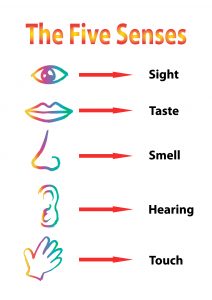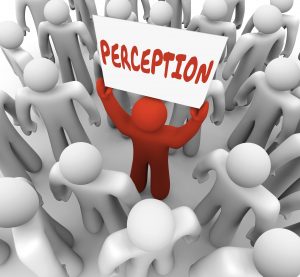Aim: To provide an overview of some of the more commonly occurring visual and perceptual impairments following Acquired Brain Injury (ABI), increase awareness of the impact of these difficulties upon the person and provide basic management guidance.
Visual and perceptual problems may occur as a consequence of ABI. Perceptual skills are important for understanding and interpreting everything that is happening in the immediate environment i.e. what is happening around us and our interpretation of it. The brain processes and interprets sensory information received from the sensory organs i.e. eyes, ears, tongue, nose and skin.
 Loss of or alterations to sight, taste, smell, hearing and sensation may occur following damage to the sense organs. However, brain injury may impair the ability to process sensory information even in the absence of damage to the sense organs themselves. Perceptual impairments result mainly from damage to the parietal and occipital lobes and associated neuronal networks.
Loss of or alterations to sight, taste, smell, hearing and sensation may occur following damage to the sense organs. However, brain injury may impair the ability to process sensory information even in the absence of damage to the sense organs themselves. Perceptual impairments result mainly from damage to the parietal and occipital lobes and associated neuronal networks.
Visual and perceptual impairments may result in anxiety and distress. However, the person may have limited insight into the cause of their difficulty. Cognitive and communicative impairments may affect the person’s ability to understand these difficulties and the implications for their everyday life. Difficulties with cognition and communication may affect the person’s ability to recognise the problem and to communicate their difficulties to others, potentially resulting in difficulties cooperating with care, anger, agitation and occasionally aggression.
Significant cognitive and communicative impairments will affect the approach to management of visual and perceptual impairment including how to support the person to understand their difficulties and how to implement a programme of rehabilitation.

Following ABI a broad range of visual and perceptual problems  may occur, some of which may be difficult to identify and differentially diagnose from other types of neurological sequelae. Occupational Therapists have the necessary skills to carry out a comprehensive assessment and diagnosis of visual and perceptual difficulties. They can provide management advice. If these difficulties are suspected, referral is recommended.
may occur, some of which may be difficult to identify and differentially diagnose from other types of neurological sequelae. Occupational Therapists have the necessary skills to carry out a comprehensive assessment and diagnosis of visual and perceptual difficulties. They can provide management advice. If these difficulties are suspected, referral is recommended.
Some of the more frequently observed visual and perceptual problems encountered following ABI include:
Visual Perception and Processing
Agnosia
Visual Field Impairments
Unilateral Neglect/Inattention
Dyspraxia